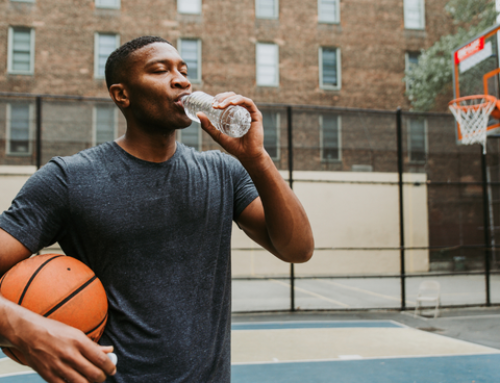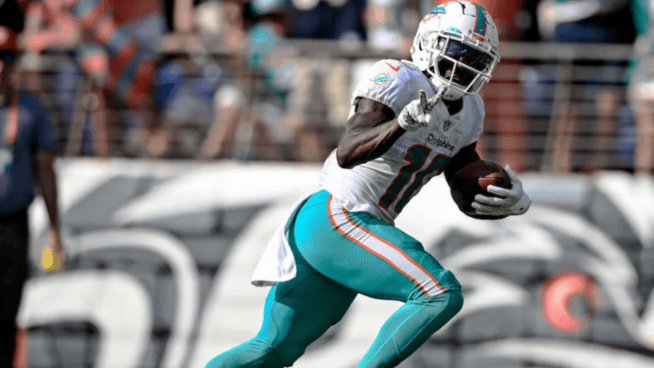Hydration Facts Athletes Need to Know
If you want to play your best and get the most out of your workouts, you must be sufficiently hydrated. If you ignore your hydration needs, your performance will suffer from fatigue, nausea, cramps or worse.
To put this in perspective, think about a car engine. To run smoothly, it must have a sufficient supply of oil. If the oil supply is low, the engine’s performance will decline. It could break down or even be damaged beyond repair. Do you want this to happen to your body? I didn’t think so.
To stay hydrated and keep your athletic performance at its peak, arm yourself with these hydration facts:
Hydration Facts
- Your muscles are 75 percent water. If you’re dehydrated, your muscles won’t be able to contract at their peak, which negatively impacts your strength and speed
- Adequate hydration gives your muscles a much fuller appearance
- Just one percent dehydration signals thirst; two percent dehydration can impede sports performance; four percent dehydration causes fatigue, weakness and mental decline; and higher levels of dehydration can land you in the hospital
- Water transports oxygen and nutrients throughout the body
- Water helps regulate body temperature and deters heat sickness when you exercise in hot and humid weather
- It is possible to be overhydrated. Water intoxication is rare, but it can occur if you are exercising for extended periods of time—like running a marathon—and drinking only water without replenishing electrolytes. Your body’s electrolyte levels become so diluted that your muscles cease to function
- You can gauge hydration by checking your urine color. Pale or colorless urine usually indicates ample hydration; light to bright yellow urine means more fluid intake is necessary
- A general guideline for minimum daily water requirements for teens and adults weighing more than 100 pounds is to divide body weight in half to derive the number of ounces you should drink each day (e.g., 140 pounds = 70 ounces of water)
I recommend athletes primarily drink water and chocolate milk (a great recovery drink) to satisfy their hydration needs. Of the two options, water is the more convenient choice. It is readily available and won’t spoil on the field when left out for extended periods of time. However, chocolate milk is also an excellent source of hydration and provides other benefits, which I will cover in a future article.
Photo: toledoblade.com
RECOMMENDED FOR YOU
MOST POPULAR
Hydration Facts Athletes Need to Know
If you want to play your best and get the most out of your workouts, you must be sufficiently hydrated. If you ignore your hydration needs, your performance will suffer from fatigue, nausea, cramps or worse.
To put this in perspective, think about a car engine. To run smoothly, it must have a sufficient supply of oil. If the oil supply is low, the engine’s performance will decline. It could break down or even be damaged beyond repair. Do you want this to happen to your body? I didn’t think so.
To stay hydrated and keep your athletic performance at its peak, arm yourself with these hydration facts:
Hydration Facts
- Your muscles are 75 percent water. If you’re dehydrated, your muscles won’t be able to contract at their peak, which negatively impacts your strength and speed
- Adequate hydration gives your muscles a much fuller appearance
- Just one percent dehydration signals thirst; two percent dehydration can impede sports performance; four percent dehydration causes fatigue, weakness and mental decline; and higher levels of dehydration can land you in the hospital
- Water transports oxygen and nutrients throughout the body
- Water helps regulate body temperature and deters heat sickness when you exercise in hot and humid weather
- It is possible to be overhydrated. Water intoxication is rare, but it can occur if you are exercising for extended periods of time—like running a marathon—and drinking only water without replenishing electrolytes. Your body’s electrolyte levels become so diluted that your muscles cease to function
- You can gauge hydration by checking your urine color. Pale or colorless urine usually indicates ample hydration; light to bright yellow urine means more fluid intake is necessary
- A general guideline for minimum daily water requirements for teens and adults weighing more than 100 pounds is to divide body weight in half to derive the number of ounces you should drink each day (e.g., 140 pounds = 70 ounces of water)
I recommend athletes primarily drink water and chocolate milk (a great recovery drink) to satisfy their hydration needs. Of the two options, water is the more convenient choice. It is readily available and won’t spoil on the field when left out for extended periods of time. However, chocolate milk is also an excellent source of hydration and provides other benefits, which I will cover in a future article.
Photo: toledoblade.com











